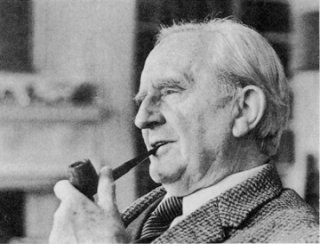He doesn’t really fit the bill.J. R. R. Tolkien that is. Novelists these days are supposed to wear their angst on their finely tailored sleeves, to be whirling dervishes of deconstruction, discontent, deviance and the divine right of protest. Yet the author of The Hobbit and The Lord of the Rings was quintessentially comfortable—in his life as well as in his tweeds. He was also formed, informed, shaped, defined and inspired by his Roman Catholicism.I write this because yet another movie based—albeit sometimes loosely—on the man’s writings is in the making, and at this rate there will be at least six full-scale feature films. There are two biopics planned about the lives of Tolkien and his friend and fellow Christian, C. S. Lewis. It’s remarkable and welcome, and while purists never welcome publicity or success, the more that is known of Tolkien by a mass audience, the better is has to be for Catholicism.It’s not only the purists in our camp, of course, who question all this.When various bookstores, newspapers, magazines and literary societies compiled their lists of all-time greats a few years ago, Tolkien won the contests over and over again. First it was a chain of stores, polling more than 25,000 people. Dickens, Tolstoy, and Jane Austen did well, but the fellow with the pipe and friends in dwarfish places came out top.This annoyed the chattering classes no end, so the highly prestigious Folio Society polled its 50,000 members. Connoisseurs of fine literature, these good men and women were certain to make a different choice.
Thursday, September 18, 2014
Michael Coren: The Magical, Timeless Popularity of J.R.R. Tolkien
Subscribe to:
Post Comments (Atom)


No comments:
Post a Comment